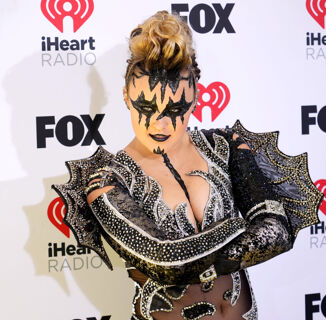I can remember being a young child and seeing so much of myself when watching Luther Vandross’ performances. From his smile to the ways that he carried himself on stage, I always thought Vandross possessed a special candor, one that often left so many people whispering about his identity and private nature behind his back.
Admittedly, when I learned via social media that there was going to be a documentary premiering at this year’s Sundance about the late Grammy Award-winning composer, writer and singer, I immediately went to a place of concern. Considering what I thought I knew about the late creator, I was worried that this would be another film seeking to “out” him. More than anything, I kept asking myself, “How much of this film would be about the actual talent of the “Velvet Voice” and how much of the film would be spent speculating on the identity of a person who never felt safe enough to be their authentic self, both in entertainment and out in the world?
However, in Dawn Porter’s new documentary, Luther: Never Too Much, I was so grateful to see her balance care and intentionality in examining Vandross’ story, making it a narrative about self-reflection, rather than projection.
Culture, unfiltered
Twice a week, our newsletter will bring you the pulse of queer culture, from the tastemakers to the groundbreakers.
It was clear that Porter went into directing this documentary asking both herself and the world “What is the true meaning of Vandross’ legacy?” in a world that often only recognized him for just his voice. The film reckons with the society’s assumptions placed onto Black men who, like Vandross, appear to be “soft” in a world that prizes hypermasculinity.
Related:
James Ijames and Calvin Leon Smith Talk Broadway’s Fat Ham and the Value of Being ‘Soft’
Pulitzer Prize-winning “Fat Ham” doesn’t merely reinvent Shakespeare’s “Hamlet,” it reconstructs how we view Blackness, queerness, and masculinity.
While Porter highlights Vandross finding success in the music industry, she also focuses on what it was like for Vandross to navigate his music career while wrestling with questions about his weight and sexuality. The most interesting part of this documentary is watching media figures who interviewed him get visibly upset or frustrated when he decided not to disclose parts of his story. This reminded me of how entitled some folks feel to your narrative and how this was often the case for Vandross.
But most importantly, it felt validating to watch Porter’s work and see her examine the true impact that speculating on one’s identity can have on an individual. For years, this was the case for Vandross and finally someone is showing the implications this had.
Though we may never fully know all of Vandross’ story, what we do know is that his music and legacy is one that will always be one that centers love. Considering the times we are currently in, that will never be too much.
As someone who identifies as Black, fat, and femme, and who often found refuge in Vandross’ work, I, too, dealt with many of the same issues Vandross struggled with in silence. Seeing Porter mention Vandross’ issues with his body and the speculation around it helped validate my own struggle with the complexities of feeling hyper visible and invisible at the same time, and how painful it can be for the world to not actualize you beyond the scopes of your identity. Ultimately, Porter’s film grapples with how the world’s fixation on both his identity and sexuality made Vandross feel “unlovable” and consequently, the pain he often navigated.
I departed the theater thinking, “How could a man who sang some of the most beautiful love songs be so sad and lonely?” and I immediately came back to the ways Vandross was never given the safety to be his authentic self. I quickly came to understand that songs like “Any Love” was a song about Vandross’s wanting to be loved beyond what he looked like or how he identified. Or that the song “Wait for Love” might have been about him feeling like he would never find the someone who would see past his imperfections.
Porter’s work asks the viewer to evaluate the important question: Do we really want to know about someone’s identity to continue perpetuating stigma or because we want to help someone find freedom, truth, and peace?
Though we may never fully know all of Vandross’ story, what we do know is that his music and legacy is one that will always be one that centers love. Considering the times we are currently in, that will never be too much.
Related:
Police ‘Power’ investigated in Yance Ford’s documentary
“People need to start thinking about police power, how it is deployed and to what end.”
Don't forget to share:
Help make sure LGBTQ+ stories are being told...
We can't rely on mainstream media to tell our stories. That's why we don't lock our articles behind a paywall. Will you support our mission with a contribution today?
Cancel anytime · Proudly LGBTQ+ owned and operated
Read More in Culture
The Latest on INTO
Subscribe to get a twice-weekly dose of queer news, updates, and insights from the INTO team.
in Your Inbox
















